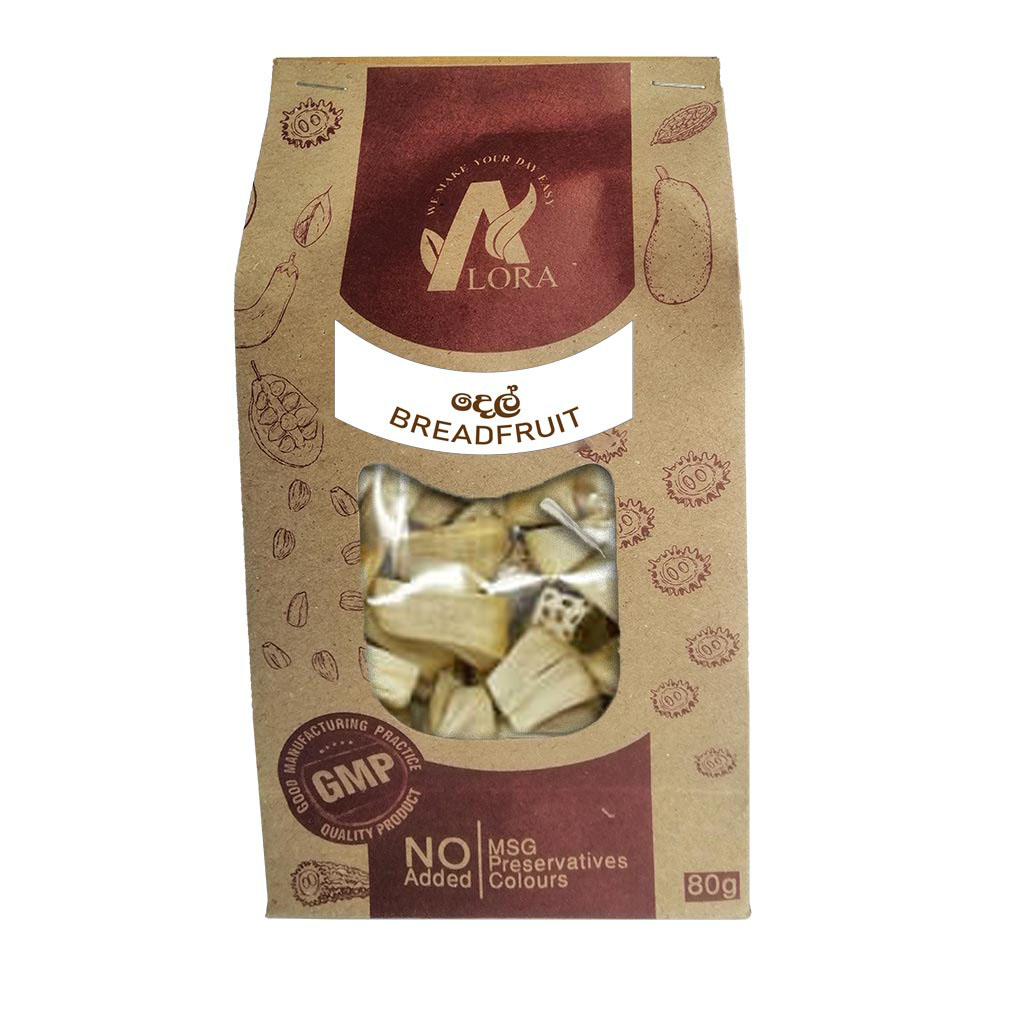Dehydrated Breadfruit (80g)
V005
Rs. 500.00
Benefits of Breadfruit
- Breadfruit is a source of high energy. Potassium and phosphorus have been reported in relatively good quantities,
- contains considerable amounts of starch
- Breadfruit protects the body against heart disease and heart attack
- And has good levels of iron, niacin, and riboflavin at all stages of maturity.
- Although not high in protein, the amino acid profile of its protein is favourable.
- Breadfruit also contains significantly high amounts of fibre. (According to the American Heart Association, fibre decreases bad cholesterol and triglycerides, which increase the risk of a heart attack. An increased intake of fibre lowers low-density lipoprotein (bad) cholesterol levels while elevating high-density lipoprotein (good) cholesterol levels in the body.)
- Breadfruit benefits the body because it contains favourable amounts of omega-3 and omega-6 fatty acids
Out of stock
Categories: Dehydrated Vegetables
Product details of
Dehydrated Breadfruit (80g)
Our products are dehydrated by using a heat pump dryer, the evaporation process is much gentler, and uses lower heat, so the nutrients stay intact, making the nutritional composition as close to fresh as possible. It helps prevent the growth of microorganisms and decay of the food and increases the ‘shelf life of the food. Dehydrating food can save you money, reduce food waste, and speed up your cooking
Description About breadfruit
- Breadfruit, (Artocarpus altilis), is a tree of the mulberry family (Moraceae) and its large fruit. that is a staple food of the South Pacific and other tropical areas.
- Breadfruit contains considerable amounts of starch and is a source of high energy
- It is a relatively good source of calcium (Monro et al., 1986). Potassium and phosphorus
- Compared to other tropical starchy foods, it is an acceptable source of vitamin C (20 mg/100 mg of pulp) and has good levels of iron, niacin, and riboflavin at all stages of maturity. Although not high in protein, the amino acid profile of its protein is favourable
- Breadfruit also contains significantly high amounts of fibre. (According to the American Heart Association, fibre decreases bad cholesterol and triglycerides, which increase the risk of heart attack)
- An increased intake of fibre lowers low-density lipoprotein (bad) cholesterol levels while elevating high-density lipoprotein (good) cholesterol levels in the body. Breadfruit protects the body against heart disease and heart attack (Fassbender, 2008).
- Breadfruit benefits the body because it contains favourable amounts of omega-3 and omega-6 fatty acids.
- This is a Vegan product
Packing
-
- Polypropylene inner pack
- Crafted paper outer cover
Package size – Length: 11cm, breadth: 6cm, height: 20cm
How to store:- Store in a cool dry place, after opening keep in an airtight compartment or in a fridge
How to use:–
- Use luck warm water (400C), soak for 20 min or more to rehydrate and cook as you desire
- The breadfruit can be eaten as a vegetable, is boiled, fry or, or cooked with coconut milk
- Boil and mixed with coconut pepper powder and salt
Benefits of Breadfruit
- Breadfruit is a source of high energy. Potassium and phosphorus have been reported in relatively good quantities,
- contains considerable amounts of starch
- Breadfruit protects the body against heart disease and heart attack
- And has good levels of iron, niacin, and riboflavin at all stages of maturity.
- Although not high in protein, the amino acid profile of its protein is favourable.
- Breadfruit also contains significantly high amounts of fibre. (According to the American Heart Association, fibre decreases bad cholesterol and triglycerides, which increase the risk of a heart attack. An increased intake of fibre lowers low-density lipoprotein (bad) cholesterol levels while elevating high-density lipoprotein (good) cholesterol levels in the body.)
- Breadfruit benefits the body because it contains favourable amounts of omega-3 and omega-6 fatty acids





